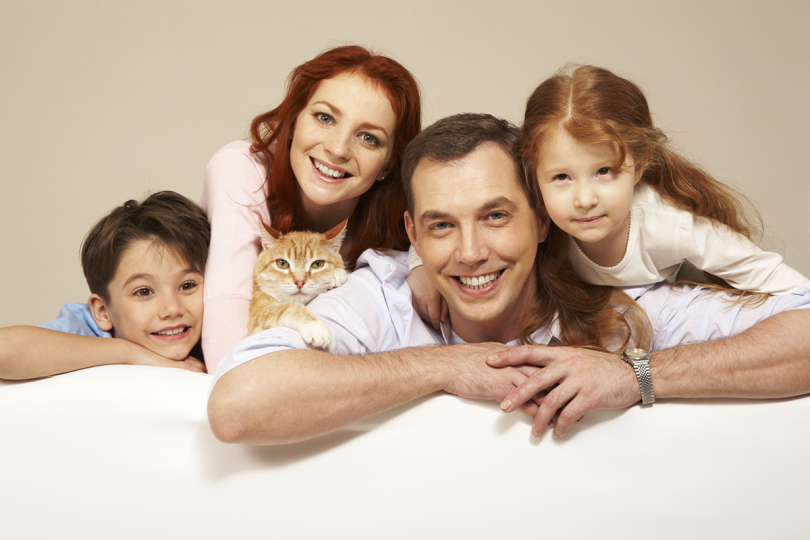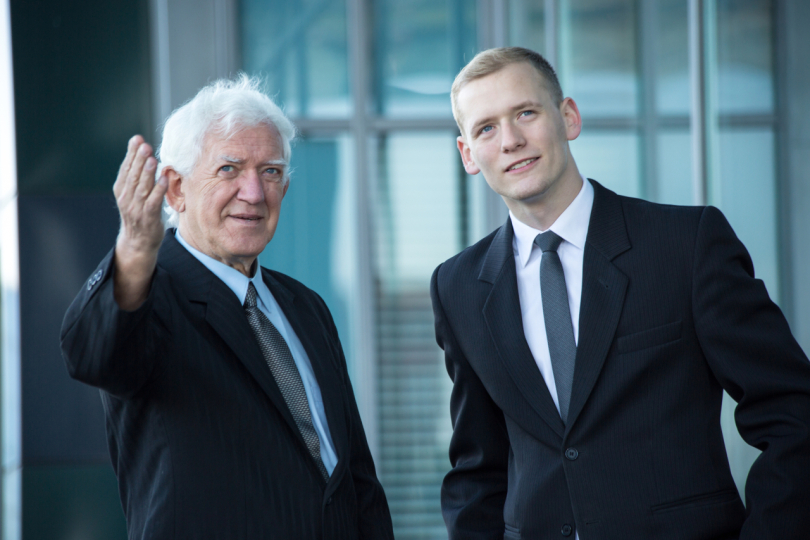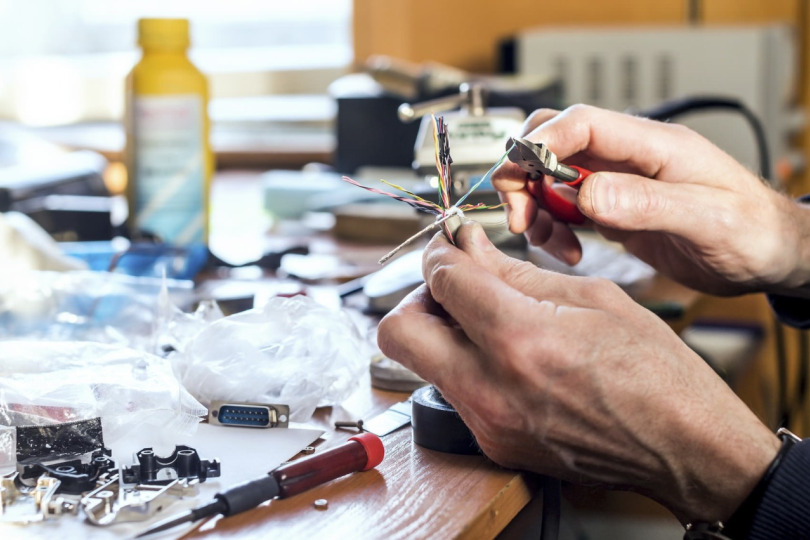-%D0%BC%D0%B0%D0%BC%D0%B0%20%D1%81%20%D1%80%D0%B5%D0%B1%D0%B5%D0%BD%D0%BA%D0%BE%D0%BC%20%D0%B7%D0%B0%20%D1%81%D1%82%D0%BE%D0%BB%D0%BE%D0%BC.jpg)
How Children Affect Mother's Career
Mothers of three or more children are four times as likely to be unemployed compared to mothers of one or two children, according to Alina Pishnyak's study 'Employment opportunities and constraints for women in Moscow.'

Pets Can Help Families Deal with Relationship Problems
The decision to get a family pet tends to be associated with children’s growing-up crises. According to the researchers, many parents adopt a cat or a dog at a time when their son or daughter is going through a major change, such as starting school or entering puberty. At such times, the child's attitudes towards themselves and the outside world can change drastically, causing anxiety in the family. Research suggests that pets can help both parents and children cope with stress. The study's findings are published in the paper 'The likelihood of getting a family pet depending on the age of children.'

Fathers and Sons Don’t Compete on Labour Market
Younger and older employees are not competitors on the labour market. The possible increase in the retirement age and, accordingly, increased employment among the elderly won’t add to youth unemployment and won’t limit the opportunities for young people’s employment. These are the findings made by Sergey Roshchin and Victor Lyashok in their study ‘Younger and older employees on the Russian labour market: substitutes or not?’
HSE Announces Student Research Competition
Students from universities in Russia and abroad have until October 31st to submit their applications for HSE’s open competition for research conducted in business informatics, computer science, mathematics, media communications, and political science.

What Employers Expect from Graduates
School reputation and graduating with honours are not as important for future employers as graduates' personal qualities and work experience, according to Natalia Bondarenko and Tatiana Lysova's study "Job Search Models, Recruitment Criteria, and Competence and Skill Assessment of Vocational Education Graduates: Employer Perspective." In 2015, they analysed the findings from a survey of 1,019 CEOs of Russian companies in six industries (manufacturing, communications, construction, transport, trade and services) as part of the Monitoring of Educational Markets and Organisations (MEMO) project conducted by the HSE jointly with the Levada Centre.
-%D1%88%D0%BA%D0%BE%D0%BB%D1%8C%D0%BD%D0%B8%D0%BA%D0%B8%20%D0%B7%D0%B0%20%D0%BF%D0%B0..%D0%BB%D1%8C%D1%87%D0%B8%D0%BA%20%D0%B4%D0%B5%D1%80%D0%B3%D0%B0%D0%B5%D1%82%20%D0%B7%D0%B0%20%D0%B2%D0%BE%D0%BB%D0%BE%D1%81%D1%8B%20%D0%B4%D0%B5%D0%B2%D0%BE%D1%87%D0%BA%D1%83.jpg)
School Climate Can Affect Academic Performance
Children tend to perform better at schools with a positive psychological climate, where they feel safe and comfortable, according to Tatiana Chirkina and Tatiana Khavenson's study 'Correlation between School Climate and Student Academic Achievement.' According to social scientist Renato Tagiuri, the school climate is understood as comprising several dimensions, such as student-teacher communication, student attitudes towards school, and teacher work satisfaction and expectations in terms of student academic achievement.
'The Type of Inequality in a Country Is Unimportant; What's Important Is How People See it'
At the beginning of September, the American Political Science Associate (APSA) awards ceremony took place in Philadelphia, Pennsylvania. At the ceremony, two awards were given to the work Misperceiving Inequality* by Vladimir Gimpelson and Daniel Treisman for the best research project presented at the 2015 APSA congress. The comparative public policy section gave one award, while the comparative political research section gave out the other.
What Shapes EU MPs Views on Russia?
EU MPs are increasingly negative on Russia, and their positions are largely defined by their national interests – rather than by their ideological affiliation to any particular political grouping in the European parliament. The researchers believe that this indicates that national interests trump ideological stance for EU MPs. Their research was presented in the article: National or European Politicians? Gauging MEPs Polarity when Russia is Concerned.
No Easy Money for Russian Schoolchildren
Normally, parents help shape their children's attitudes towards money. In their study "Adults' Perceptions of Pocket Money and Cash Rewards as Tools of Children's Economic Socialization," Alina Pishnyak and Natalia Khalina compare parental attitudes towards pocket money in the U.K., Germany, and Moscow, Russia. Their findings concerning Moscow are based on data from the Moscow and Muscovitessurvey of 3,109 adult respondents, of whom 75% were parents, conducted by the Institute of Humanitarian Megacity Development in 2014. According to the study's authors, most parents begin educating their children about money at the age of six.

Russian User-Innovators: What and Why
Many Russians practice user innovation by developing their own inventions for use in everyday life, recreation, sports, etc. According to a study by Konstantin Fursov and Thomas Turner conducted as part of the HSE ISSEK Monitoring Survey of Innovative Behaviour of the Population, the estimated share of user-innovators in Russia may be as much as 10%, which is substantially higher than in many other countries.


Deadline for applications to present academic reports - January 20, 2025